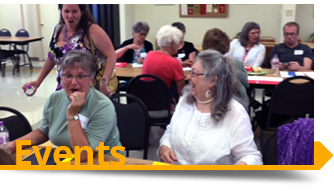Human Trafficking by Deb Martin
Human Trafficking by LOPPW Council Member Deb Martin, Oshkosh
LOPPW has made anti-sex trafficking one of our legislative priorities since 2014. The U.S. Department of Justice describes trafficking as the recruitment, harboring, transportation, provision or obtaining of a person for labor or other services through the use of force, fraud or coercion, for the purpose of subjection to involuntary servitude, peonage, debt bondage, or slavery. It includes commercial sexual exploitation and crimes of a sexual nature committed against juveniles for financial or other economic reasons.
In Wisconsin, trafficking is so widespread that Milwaukee was called “the Harvard of pimp school” in a November 2015 article from The Guardian, United Kingdom-based news organization. The problem has not only affected urban areas, but every county in our state.
LOPPW advocated for money for helping teenage victims of sex trafficking in the last state budget. Part of the money included in the budget would go to open a facility to help youth victims of sex trafficking to heal. Lutheran Social Services ended up receiving the grant and has opened up a transitional home in rural Wisconsin
In 2015, the Women of the ELCA provided a $2,000 grant to the Lutheran Office for Public Policy in Wisconsin (LOPPW). According to Inez Torres Davis, Women of the ELCA director for justice, who oversees the grant process, the organization’s grants are given to help women and children. “This [grant] seemed a natural fit for the work we do, given the legislative action taken at the 2014 convention,” Inez said. At the 2014 triennial convention of the Women of the ELCA, delegates voted to help grow awareness and prevention efforts around human trafficking, a widespread crime in the U.S. and around the globe.
Trafficking, poverty linked
The funding allowed LOPPW to co-sponsor three conferences to raise awareness in Wisconsin in 2016. As an advocacy ministry LOPPW has been mostly helping Lutherans to find their voice regarding people experiencing poverty. “The link between trafficking and poverty is easy to make,” Rev. Cindy Crane, LOPPW Director, said. “Homeless people are most vulnerable, and becoming homeless after being trafficked is very high. So this was an easy issue to justify taking on.”
LOPPW also works with Cherish All Children, a decade-old national Lutheran ministry in Minnesota that is dedicated to preventing child sexual exploitation and advocating for survivors of human trafficking. It cosponsored the LOPPW conferences.
Prayer and action
Cherish All Children’s founder, Amy Hartman, an ELCA diaconal minister, and her colleagues have worked to raise awareness of childhood exploitation. Cherish All Children invites all ELCA congregations, groups and members to join its cause through the very simple model of prevention: pray, education, connect and act.
Trafficking is a crime that is often mistakenly viewed as a problem only outside the United States, Amy said. But it happens all over the country, even in places like Minnesota, where a high school cheerleader in the Twin Cities area recruited a younger cheerleader into prostitution in 2013, she said. It can happen quietly, she said, and it affects both girls and boys. Sometimes families even exploit their children for money or drugs.
The U.S. Department of Justice estimates that every year more than 200,000 children in the United States are sexually trafficked, with an additional 244,000 to 360,000 children at risk. Children are often sold for brothels, sex trafficking, mail order brides, sex tourism, pornography, prostitution, stripping, lap dancing and phone sex companies.
Milwaukee, Las Vegas, Denver and Detroit have particularly high incidences of trafficking. “There are so many children in this world that are trafficked, abused and exploited, and we’re at a great moment in history,” Amy said. “We’re realizing what is going on with trafficking of children, and I believe our church has a role in preventing this. Years ago, we might not have understood how it works, but now we do. …It’s an amazing time to be the church and lead change on this issue right now.”
Getting involved
Women of the ELCA, LOPPW and Cherish All Children are among the faith-related groups that offer resources and ways for congregations to learn more and take action related to human trafficking. Sign up for Action Alerts via LOPPW to keep up with legislation related to human trafficking as well as other important proposed bills: Join the Advocacy Network http://support.elca.org/site/Survey?ACTION_REQUIRED=URI_ACTION_USER_REQUESTS&SURVEY_ID=1664
Also check out LOPPW’s resource: Human Trafficking – What does the church have to say? http://www.loppw.org/resources/loppw/
Women of the ELCA offers a free “Understanding and Responding to Human Trafficking” program on its website at welca.org/humantrafficking. The program is designed to help ELCA members understand what human trafficking is, what is being done to stop it and how they can participate in those efforts. It includes a study guide, discussion questions, survivor stories, books, movies and additional resources.
Cherish All Children partners with congregations across the ELCA. A first step in the partnership is to begin praying for children—either by name, or in general. All it takes to get involved, Amy said, is for one person in the congregation to spearhead the cause and get a few members interested.



